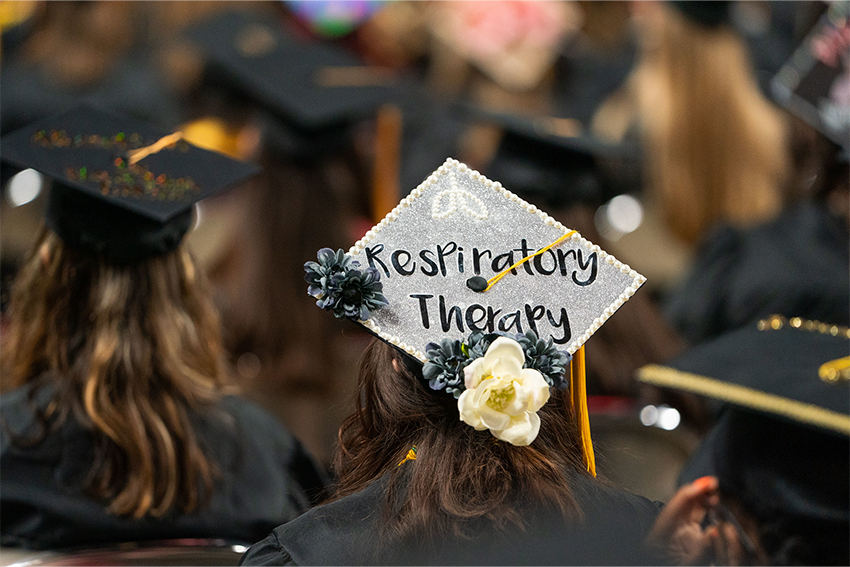During the pandemic, the public learned about the critical role respiratory therapists play in hospitals.
As practitioners treating people with sudden or chronic breathing problems, they were on the frontlines, helping people breathe and survive COVID-19.
While the pandemic may have driven awareness about the field, the demand for more practitioners was growing well before the appearance of COVID-19 and is forecasted to continue through the next decade.
Aging baby boomers increasingly suffer from medical conditions that affect breathing, like COPD and pneumonia, making respiratory therapy one of the fastest-growing fields in healthcare.
The Bureau of Labor Statistics projects a 13 percent employment growth for respiratory therapists between 2022 and 2032. In that period, an estimated 16,700 jobs will likely become available.
Bellarmine University, a private liberal arts school in Louisville, Ky., is meeting this workforce demand with one of the nation’s top-ranked respiratory therapy programs.
College Choice and Intelligent.com both rank Bellarmine University’s Respiratory Therapy undergraduate degree as the best in the nation.
Bellarmine offers a Bachelor of Health Science in Respiratory Therapy degree and a Master of Health Science in Respiratory Therapy degree. The entry-level Respiratory Therapy graduate program is one of only nine in the nation. As an entry-to-practice program, no prior healthcare experience is required for admission to the master’s program.
Dr. Christy Kane, Program Director and Chair of the program said there are a number of reasons why Bellarmine’s program has risen to national prominence.
“It’s a smaller program, so professors are able to focus on students’ needs,” she said. “They get to know the students very well, along with how individual students learn and what works for them. Professors keep an open-door policy, so students always feel comfortable approaching them. Faculty and staff are attentive to details and dedicated to students’ success.”
Bellarmine’s undergraduate program was awarded the Committee on Accreditation for Respiratory Care (COARC)’s Distinguished RRT Credentialing Success for five consecutive years, from 2013 through 2017, and also for 2020. Both undergraduate and graduate students exhibit credentialing success higher than the national average.
Dr. Christy Kane, Director and Chair of the program and a respiratory therapist, said the program also has outstanding clinical experiences. Students complete more than 750 hours of clinical experience across varying patient populations in Louisville, a regional healthcare hub.
All students, undergraduate and graduate, complete a capstone project. Students connect with a hospital leader to examine a hospital problem and propose a solution. Several student proposals have even been implemented.
“The Louisville area has such strong hospitals and other healthcare settings,” Kane said. “We have a strong alumni base, too; many of our alumni serve as preceptors or clinical instructors.”
Kane said respiratory therapy is a highly rewarding career, especially now.

Respiratory therapists earn above the median income in the United States, with a median salary of $72,441 a year in the Louisville area, according to salary.com. Opportunities to be a traveling practitioner are plentiful, as well.
“Everyone comes into healthcare wanting to make a difference,” she said. “We take care of the airway and breathing for patients. You can only live a few minutes without breathing and oxygen. Every day we know we make a difference because if you’re not breathing, nothing else matters.”
Carolyn Wallace, a Bellarmine respiratory therapy alumna who has worked at Cincinnati Children’s Hospital since 2010, said Bellarmine’s program set her up for a career she loves.
“I’d do it all over again. I’m happy in the profession, and I don’t worry about its future,” she said. “Bellarmine’s professors made me the respiratory therapist I am today. I don’t think I would have done as well at a bigger school. I only have positive things to say about Bellarmine and the path I chose.”
Click here to learn more about what respiratory therapists do and click here to learn more about Bellarmine’s respiratory therapy program.